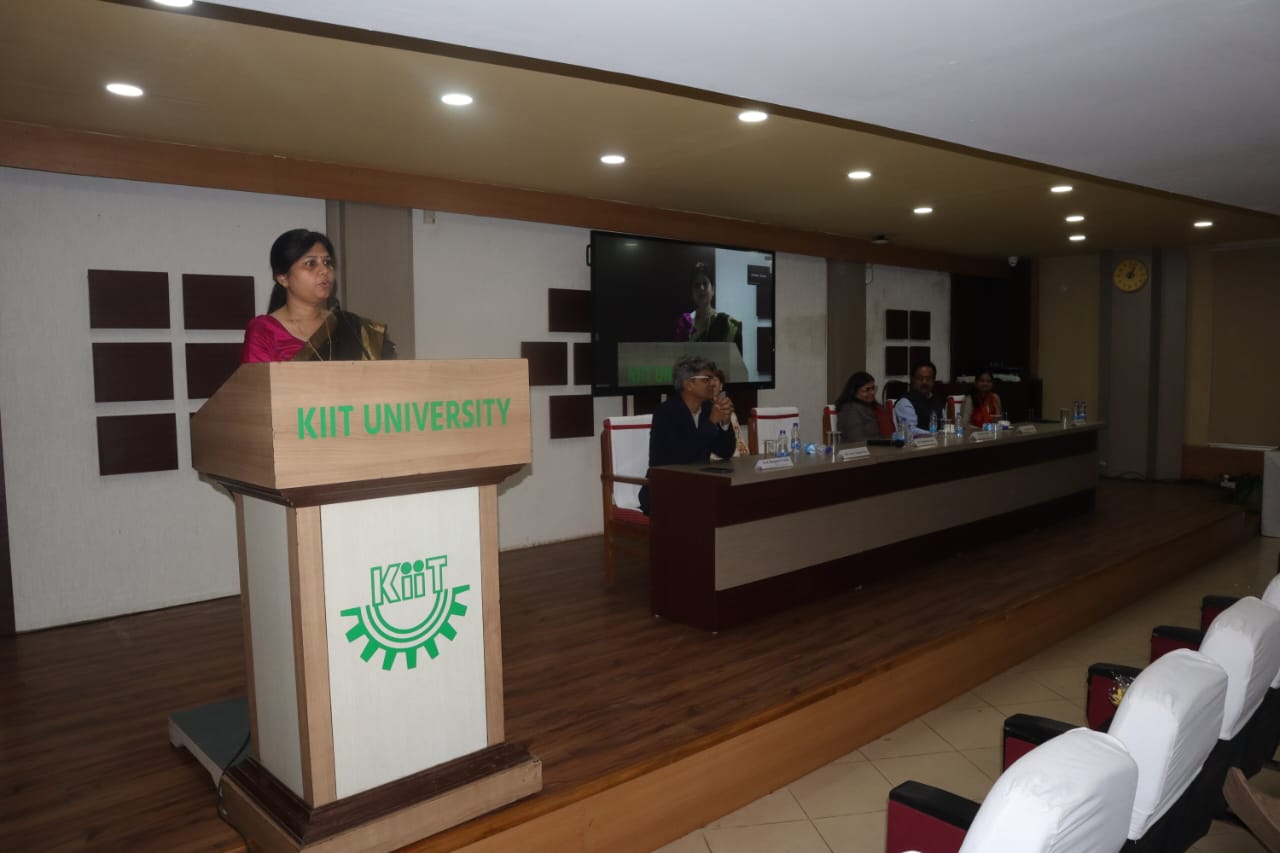International Conference: Research, Innovation & Technological Advancements in Mental Health in the 21st Century
Organized by: National Health Association of Mental Health and Allied Health Foundation (NAMAH Foundation)
( RITAMH 2024 )
December 6-8, 2024
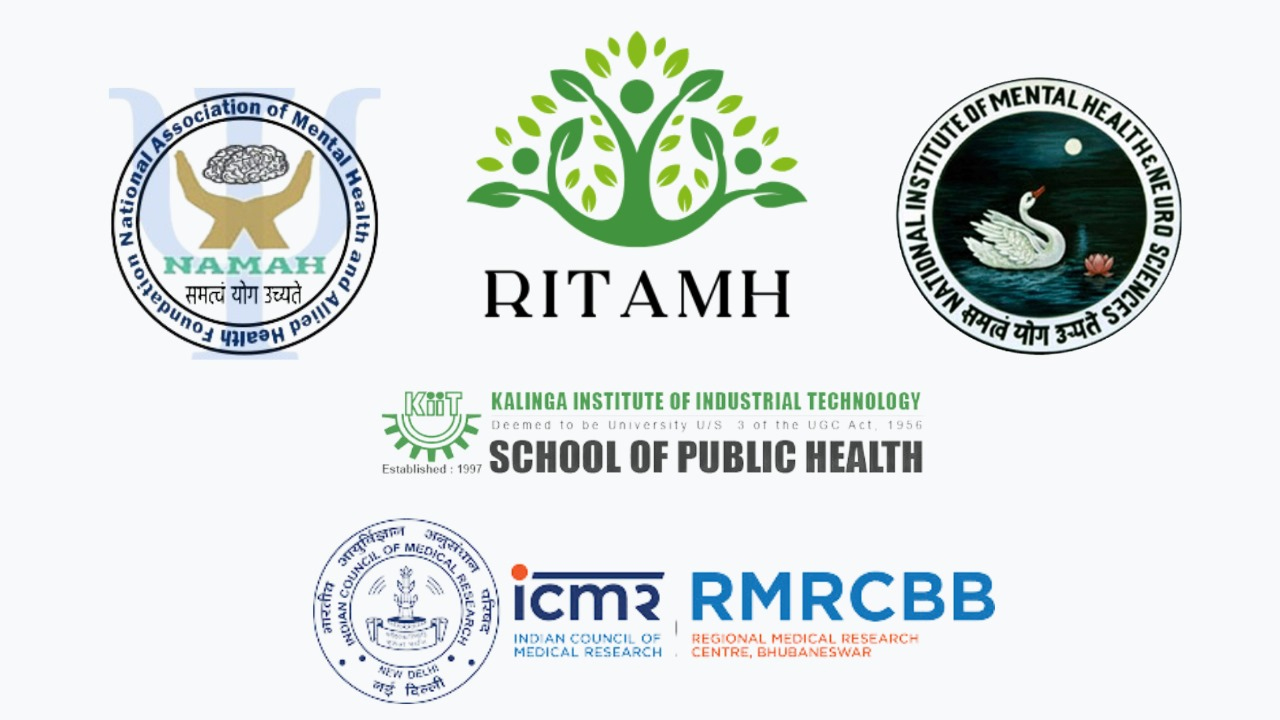
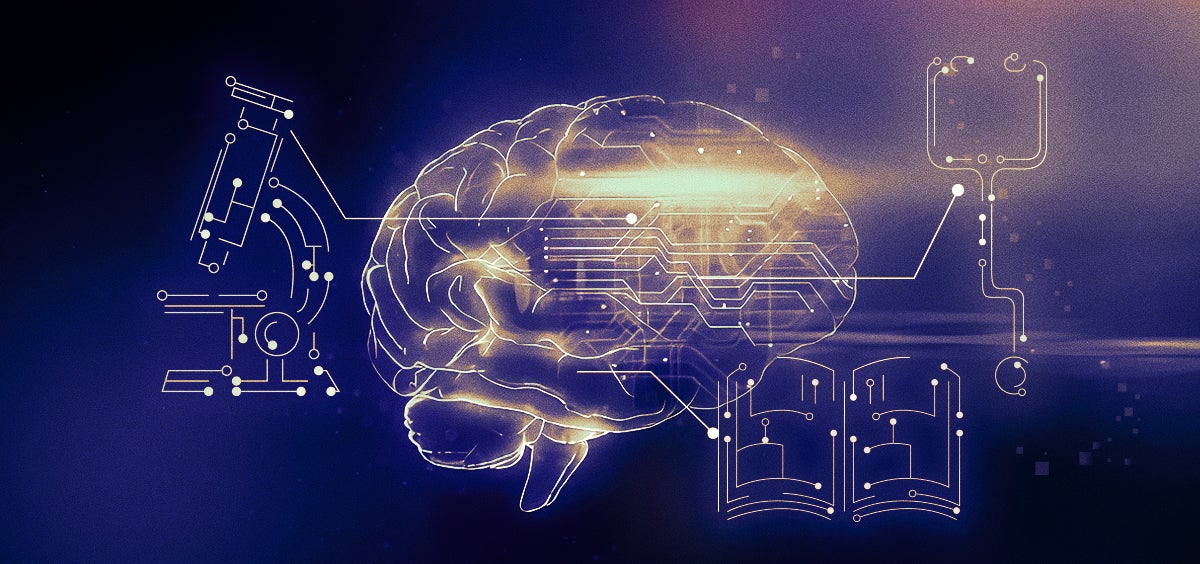
RITAMH 2024
Mental health is a state of mental well-being that enables people to cope with the stresses of life, realize their abilities, learn well, and work well, and contribute to their community. It is an integral component of health and well-being that underpins our individual and collective abilities to make decisions, build relationships and shape the world we live in. Mental health is a basic human right. And it is crucial to personal, community, and socio-economic development.
Mental health is more than the absence of mental disorders. It exists on a complex continuum, which is experienced differently from one person to the next, with varying degrees of difficulty and distress and potentially very different social and clinical outcomes. Mental health conditions include mental disorders and psychosocial disabilities as well as other mental states associated with significant distress, impairment in functioning, or risk of self-harm. People with mental health conditions are more likely to experience lower levels of mental well-being, but this is not always or necessarily the case. Mental health can be understood as a highly complex, interactive, multi-layered, and dynamic state that is shaped and influenced by biological, psychological, social, cultural, political, and economic factors. Accordingly, research, prevention, and treatment of mental disorders must move along these dimensions and consider the large variety of determinants of mental health. The global mental health burden has continued to grow into a mental health crisis, with a significantly higher treatment gap in low and middle-income countries (LMIC) than high-income country ( HIC ). A high and diverse number of digital mental health technology (DMHT) have been shown to be effective in tackling mental health problems,especially during the COVID-19 pandemic with accelerating digitalization strategies occurring across nations. DMHTs are particularly promising compared to face-to-face treatments as they offer advantages in scalability, accessibility, flexibility, and anonymity. These advantages help to integrate vulnerable people into mental healthcare by reducing potential barriers, namely lack of treatment offers, high travel effort and costs, and the stigmatization of mental illness.
Mental health technology is a burgeoning field, reshaping the way we approach emotional well-being. Recent advances have led to the development of apps, telehealth services, and AI-driven assessments. The surge in technology in mental health is breaking down barriers to treatment and offering immediate resources for coping strategies and early diagnosis. The advent of technology has catalyzed a paradigm shift in how mental health advocacy is conceptualized and executed. One of the earliest instances of this integration was using the internet to disseminate information and create virtual communities. Online forums and discussion boards provided individuals with a platform to share their experiences, seek advice, and build supportive networks without the constraints of geographical proximity. The rise of social media in the 21st century further revolutionized mental health advocacy. Platforms such as Twitter, Facebook, and Instagram became powerful tools for disseminating information, challenging stereotypes, and fostering a sense of community. Mobile technology has also played a pivotal role in expanding the accessibility of mental health resources. Smartphone applications offer various services, from mood tracking to virtual therapy sessions. These innovations empower individuals to actively manage their mental health, bridging gaps in traditional service delivery models. Virtual reality (VR) and augmented reality (AR) technologies have introduced immersive experiences that simulate various mental health scenarios. From creating virtual environments for exposure therapy to offering interactive simulations for empathy-building, these technologies promise to enhance understanding and reduce stigma. Artificial intelligence (AI) has entered the realm of mental health with applications in early detection, personalized interventions, and predictive analytics. Chatbots and virtual assistants provide instant support, while machine learning algorithms analyze vast datasets to identify patterns and trends in mental health.
In the 21st century, innovation and technological advancements have revolutionized public and mental health, providing unprecedented opportunities for accessibility and efficiency. From telemedicine platforms offering remote consultations to AI-driven interventions providing personalized mental health support, technology has become a powerful ally in addressing healthcare challenges. As we continue to harness the potential of digital solutions, it's essential to ensure equitable access and ethical use to maximize their benefits for all individuals and communities.
Organizing Institutes
NAMAH Foundation
NAMAH Foundation is registered under Trust Act. It works with communities to raise mental health awareness, enable early detection of mental illnesses and to aid, assist, provide, and offer comprehensive care and professional counselling services, as well as high-quality mental health services, in order to promote and improve overall well being. The mission is to provide counselling services to children, adolescents, adults, couples, families, and senior citizens from various socio-economic backgrounds.

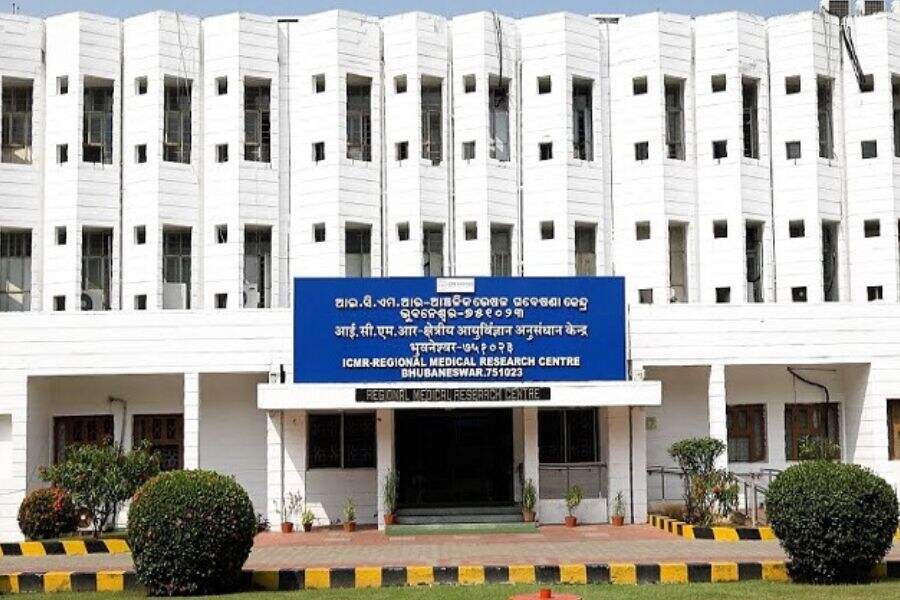
ICMR-Regional Medical Research Centre
The ICMR-Regional Medical Research Centre, Bhubaneswar is a permanent research centre of Indian Council of Medical Research. The foundation stone of the centre was laid by the then prime minister of India Late Mrs. Indira Gandhi on 29th March 1981. For the past 3 decades, the institute has continued to remain as a national and international focus for collaboration in research where clinical, population, laboratory and social sciences are integrated to address the broad issues of health. The strength of these disciplines, combined in a single institution and tightly linked by a common mission, creates a unique multidisciplinary environment for capacity building and research.
The ICMR-Regional Medical Research Centre, Bhubaneswar conducts basic as well as applied research to understand and ultimately develop prevention strategy for diseases of regional importance like lymphatic filariasis, malaria, diarrhoeal disorders, tuberculosis, HIV/AIDS, emerging and re-emerging bacterial/viral infections, haemoglobinopathies and allied disorders, hypertension, diabetes and health problems related to tribal populations. For more than 30 years, research by RMRC has led to identification of a new molecular variant of G6PD, development of new molecular tool for diagnosis of cholera strains, test for simultaneous identification of mosquito species, presence of malaria sporozoite and kind of blood meal taken by the mosquito vector, strategy for improvement of compliance of single dose DEC for elimination of lymphatic filariasis in urban areas, treatment regimens for lymphatic filariasis and therapies for scabies for the improvement of the health of millions of people.
RMRC, Bhubaneswar is one of the 26 Institutes and Centers of the Indian Council of Medical Research (ICMR) under Department of Health Research (DHR), Ministry of Health & Family Welfare of Government of India. ICMR is the apex body in India for the formulation, coordination and promotion of biomedical research; it is one of the oldest medical research bodies in the world.
KIIT School of Public Health
KIIT School of Public Health (KSPH) is a constituent of KIIT Deemed to be University, Bhubaneswar. KSPH was established with a mission to develop a competent public health workforce and setting standards in various domains of public health; inculcate interventional approaches to public health research and technology; and strengthen knowledge based application and evidence-based public health practice and policy. In order to pursue this mission, the School is engaged in producing knowledge through research, higher education, and translates knowledge into evidence that can be communicated to the public, policy makers and practitioners to advance the health of the population.

The School is mandated to provide student centric and world class quality teaching for the fresher and in-service candidates; undertake evidence-based research; and facilitate service provision to the community through local, national and international collaboration. Its academic programmes are aimed at preparing the next generation of public health professionals, managers, hospital administrators, health policy makers, public health practitioners, research leaders and academicians. A career in public health opens the door to diverse and challenging opportunities in a variety of sectors like government, private, corporate, industry and international agencies. A career in hospital administration opens the door to challenging opportunities in private, corporate and government hospitals, health insurance companies and hospital consultancy agencies.
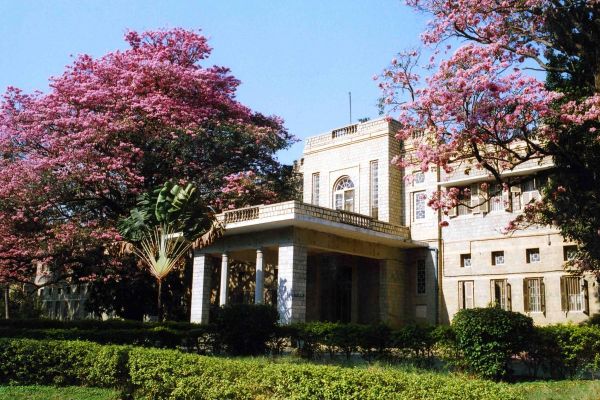
DPSSDM, National Institute of Mental Health and Neurosciences (NIMHANS)
National Institute of Mental Health and Neurosciences (NIMHANS) has been involved in psychosocial support and mental health services (PSSMHS) for survivors of disasters in the past four decades. This includes providing psychosocial first aid, care, support, rehabilitation, reconstruction, preparedness, capacity building, hazard vulnerability risk reduction and mitigation. Further, human resource development, research, program developments and policy initiatives have been in the forefront. National Institute of Mental Health and Neurosciences (NIMHANS) has been recognized by the Ministry of Health and Family Welfare, GOI, as a nodal centre for Psychosocial support in (PSS) in disaster in 2005, as a ‘Centre of Excellence’ by the National Disaster Management Authority in 2010, and a Nodal centre for Psychosocial support and Mental Health services for the COVID 19 pandemic in 2020.
Recognizing the need for furtherance of the objectives of PSSMHS, the Ministry of Health and Family Welfare, GoI sanctioned the Centre for Psycho-social support in Disaster Management at National Institute of Mental Health and Neurosciences (NIMHANS) in August 2019. Since its enhancement it has been striving to upkeep the vision and mission not only at the national level but the international level in the specialized cross-cutting theme of psychosocial support and mental health services in promotive, preventive and curative aspects.
International Conference: Research, Innovation & Technological Advancements in Mental Health in the 21st Century
Conference Major Themes
A. Mental Healthcare Systems
B. Mental Healthcare Policies
C. Mental Healthcare Services
A. Mental Healthcare Systems
B. Mental Healthcare Policies
C. Mental Healthcare Services
1
Mental health services through tele-medicine
2
Mental health services during disasters and warfare
3
AI and machine learning on mental health services
4
Mental health care and services for persons with disability
5
Twenty-first century mental health care in public health system
6
Addiction disorders and rehabilitation
7
Neuro-psychiatry disorders and care
8
Counselling and therapeutic techniques in mental health care
9
National and international policies on mental health
10
Mental health services for defence personnel
11
Mental health services for rural population
12
Neuroscience of wellbeing
13
Indigenous health care practices on mental health
14
Mental health issues and challenges in post-pandemic era
15
Mental health in industrial settings
Tourist Attractions




















